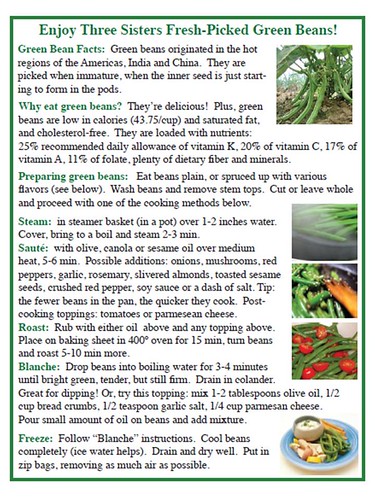
Employees of USDA-Agriculture Research Service in Urbana, Illinois teamed up with the University of Illinois to establish a unique Peoples Garden this year. The garden was named ‘Three Sisters’ because we grew variations of the three main agricultural crops of some Native Americans: maize, beans and squash. The garden produced sweet corn, which has been improved in multiple, significant ways by the University of Illinois. We also grew 14 cultivars of edamame developed in Urbana by retired USDA-ARS plant breeder Richard Bernard. In addition to green beans, we also cultivated several types of pumpkins, recognizing Illinois grows 95% of the nation’s pumpkins used in processing.
Vegetables produced in the garden were donated to non-profit and charitable organizations, many of which served the needs of children. Additional produce was used to leverage improved nutritional choices among low-income families. Reading a local newspaper article on the garden, Brandon Meline, director of the Champaign Urbana Public Health District (CUPHD), contacted me with an excellent idea. As a result, the CUPHD offered our donated produce as an incentive for improved nutritional choices among their clientele. Specifically, recipients of Supplemental Nutrition Assistance Program (SNAP) or the Women Infants and Children Program (WIC) received a bag of Three Sisters produce when they used their benefits to buy fresh fruits or vegetables from a local farmers market. In addition, information cards for each crop were developed to provide CUPHD clientele with background about each crop, key nutritional benefits and simple ideas for preparation.
Was the project successful? The Three Sisters Garden produced and donated 9,061 pounds of produce. Of this, CUPHD leveraged 1,838 pounds of vegetables to improve nutritional choices among SNAP and WIC clientele. The farmers market where CUPHD conducted the incentive program saw in increase in customer traffic, sales volume, and revenue compared to previous years. CUPDH clientele came to the market specifically for the Three Sisters produce which was used exclusively as a match for purchases from local farmers. Use of SNAP benefits was up 122% from the previous year, and while the 2010 data are incomplete, some $40,000 of activity in the WIC program was possible.
Participants involved in the project – including garden volunteers, CUPHD staff, and charitable organizations – are eager about the prospects of next year’s activities.

